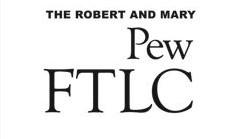A Generation with Too Much Information: Reversing the Research Paper Process
Session Location
Eberhard Center 421 B
Session Start Date and Time
24-8-2011 1:45 PM
Session End Date and Time
24-8-2011 2:15 PM
Session Abstract
Students often feel overwhelmed by the amount of information available to them in research assignments. Typically, we present the process as reading expert opinions before trying to create a thesis which puts forward a new idea. However, if student inquiry originates with observation, writing from what they know, conversation, and finally, addressing the research, then anxiety (and plagiarism) will decrease. This session will provide a practical strategy to engage students in evaluation, interpretation and synthesis (a.k.a. information literacy).
Session Description
As I struggled in a GVSU undergraduate course to come up with a unique thesis for a research paper last winter, I fully realized the frustration that our students face. From a student’s perspective, writing a report was easy, but writing a thesis was challenging to the point of being overwhelming. Despite being a professional educator for 21 years, after reading the research on a topic, I felt as if I had nothing new to say.
In previous work with Writing faculty members, I observed the progression of assignments from writing based on personal observation to a fully-fledged and unique thesis paper. More recently, the following blog post response reminded me of the value of a process which opens up possibilities rather than shutting them down:
In Whither the research paper?, Maura Smale (ACRLog, Feb. 18) questions the value of formal research paper assignments. It is the comment by Joan which has the most insight: "It’s really hard to present your own ideas when you’ve read all the experts’ thoughts. What are your own ideas at that point? Even as a graduate student in English studying in a relatively new area, after a thorough lit review that covered all the questions I had about a piece, I wasn’t sure what was left to say. … Perhaps a remedy would be this: get the students to choose the topic and write about it in-depth and thoughtfully *before* they do any research. Then, they research and review the important articles and learn what the experts have to say; they write this up as a lit review. Then, they write a third piece explaining how their thoughts have evolved or changed given what they’ve read. So they write about their own perspective, but bolstered and informed by research. (And, as a former writing instructor, I would probably toss in a fourth piece where they reflect on the whole process, reading their original essay and final essay and comparing them.)"
Information literacy within the phenomenographical context is based on observation and practical application: learners' ideas must be drawn out so that we assess their understanding and readiness before they increase their knowledge. We will incorporate this idea in the roundtable discussion along with examples of assignments.
Reversing the Research Paper: Overview and Process Outline
A Generation with Too Much Information: Reversing the Research Paper Process
Eberhard Center 421 B
Students often feel overwhelmed by the amount of information available to them in research assignments. Typically, we present the process as reading expert opinions before trying to create a thesis which puts forward a new idea. However, if student inquiry originates with observation, writing from what they know, conversation, and finally, addressing the research, then anxiety (and plagiarism) will decrease. This session will provide a practical strategy to engage students in evaluation, interpretation and synthesis (a.k.a. information literacy).

